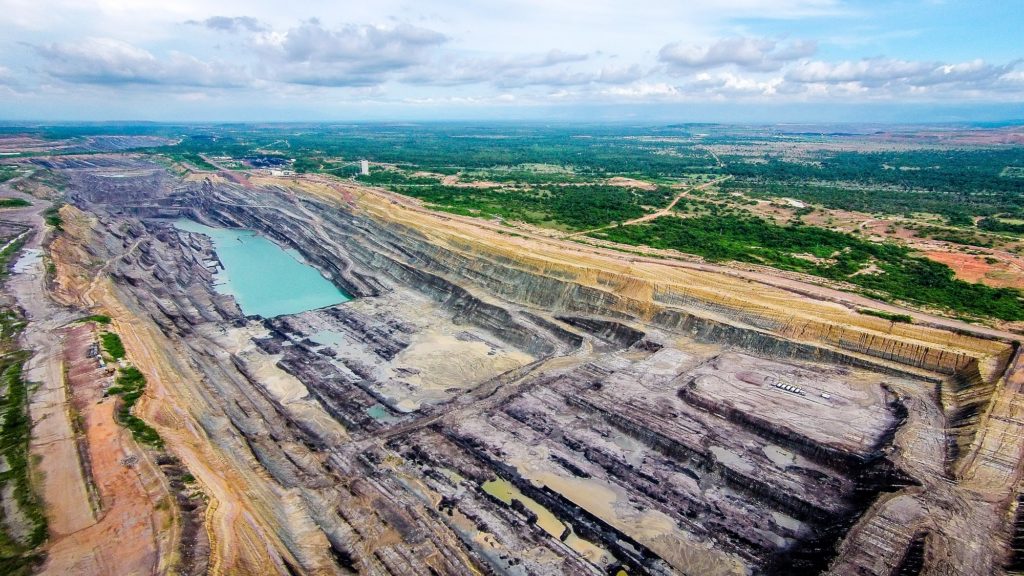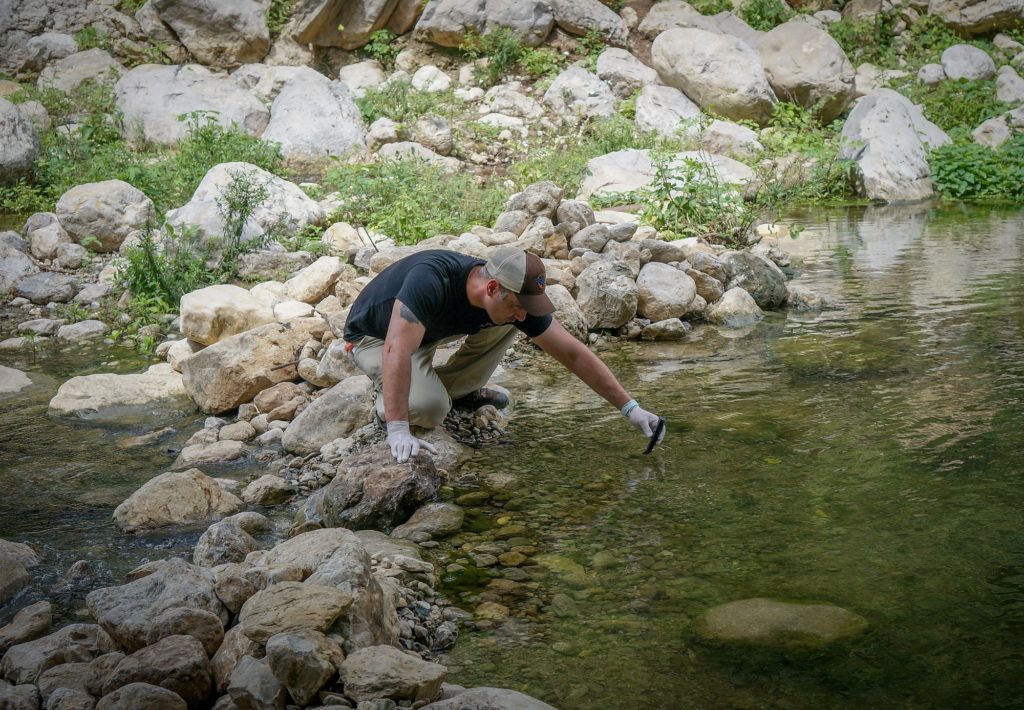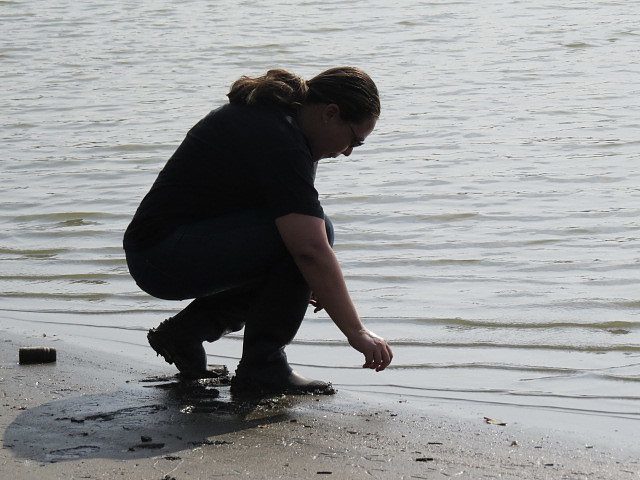Won’t Back Down: Colombia’s Coal-War Warrior
By: Pete Harrison
This article is also available in Spanish.

There is an old saying that dynamite comes in small packages. At just a smidgen over five feet, Bocas de Ceniza Waterkeeper Liliana Guerrero is pure Colombian dynamite. From her small office on a busy street in Barranquilla on Colombia’s north coast, Guerrero is leading a determined charge to stop the destruction that multinational coal companies are wreaking on her country, and she is doing it in spite of considerable personal risk.
It is no coincidence that Colombia is the largest producer and exporter of coal in Latin America and is also second in the world, to Brazil, in murders of environmental activists, according to the U.S. Energy Information Administration and the latest Global Witness report. As Waterkeeper Alliance’s president, Robert F. Kennedy, Jr., has remarked, “Wherever you find Big Coal, you will find a subversion of democracy.” Nowhere more so, perhaps, than in Colombia.
Barranquilla is located in the delta where the Magdalena River, Colombia’s most important waterway, meets the Caribbean Sea. It is an industrious port city and is also home to the Barranquilla Carnival, second only to Rio de Janeiro’s in size and energy. Not surprisingly, the city’s residents, called barranquilleros, have a reputation for being both hard working and fun loving, embodying the two competing characteristics of their city. Liliana Guerrero is no exception. She can be light-hearted but there is also a no-nonsense aspect to her, putting you on notice that once she starts something, she is deadly earnest about finishing it.
Guerrero’s family has lived in Barranquilla for at least five generations (that is as far back as the records go), and she has a deep, almost palpable love for the place. She named her organization Bocas de Ceniza Waterkeeper after the area where the Magdalena River empties into the Caribbean Sea. Ceniza, meaning “ashes,” describes the color of the water where the often-muddy river mingles with the sea.

When Guerrero started her organization, the main problem she thought she would be dealing with was Barranquilla’s untreated domestic and industrial sewage, which were polluting the Magdalena River and devastating the legendary coastal mangrove stands in the Mallorquín marshes north of the city.
“I did not think the coal industry would be the greatest threat to Barranquilla and our precious wetlands, mangroves, river and sea,” she says. “But as the industry expanded, I came to understand the magnitude of the devastation of open-pit mining in the departments of César and La Guajira, as well as from the transportation of mined coal across the department of Magdalena and the catastrophic spills into the ocean at the coal-export ports.”
When the construction of a “super port” was proposed in Barranquilla to increase coal exports to more than 20 million tons of coal per year, and reports of rail and coal-barge spills increased, it became clear to her that the coal industry had become the greatest threat. “And there was no choice but to oppose what they were doing,” she says.
She faced a serious obstacle not in the country’s laws, but in its failure to enforce them. Since 1991, when Colombia enacted a new constitution, the country has had some of the most advanced environmental legislation in the world. The constitution’s fundamental reforms were designed to protect both the basic rights of citizens (especially disadvantaged and indigenous groups, of which Colombia has 84 distinct ones) and collective rights, including the right to a healthy environment. But more than two decades later, these are mainly paper promises.
“Legal experts may claim that Colombia has a ‘green’ constitution that ensures the people’s right to a healthy environment and clean drinking water,” says Guerrero, who is a lawyer. “But the government’s commitment to this once-promising ecological legislation remains little more than political oratory divorced from effective enforcement.”
In reality, Colombia’s magnificent ecosystems, which include wetlands, mangrove forests and alpine tundra, are continuously endangered, in part because of lax regulatory practices that allow licenses to be summarily issued for environmentally destructive commercial projects, especially in the exploration and mining of hydrocarbons.
By the end of 2012, the Colombian government, according to its National Audit Office, had signed 9,400 mining licenses, covering 5.6 million hectares. Of those licenses, 3,760 are currently being exploited, spanning 2.1 million hectares, which is almost two percent of the country’s territory. More than 19,000 pending mining-title petitions reportedly target 40 million additional hectares of the 114 million hectares in the entire country, representing 45 percent of the land.
The U.S. Energy Information Administration reports that Colombia’s coal production doubled between 2002 and 2012, making it the world’s 11th-largest producer of hard coals. And it is now the world’s 5th largest coal exporter, sending nearly 94 percent of its coal production abroad. The mining and transportation of coal has contributed to the degradation of vital ecosystems in the country’s northern regions, particularly in the departments of César, La Guajira and Magdalena.
“What we are witnessing,” Guerrero says, “is that the Colombian government’s mining policies are flouting the provisions of the 1991 constitution and the jurisprudence of the Constitutional Court, reducing the foundation of Colombian environmental law to nothing more than beautiful prose decorating legal texts.”
In the state of César in northeastern Colombia, the multinational Drummond Company, which was founded in Alabama in 1935, operates one of the largest open-pit mines in the world, the colossal Pribbenow mine. Since it acquired the rights to the nearly two billion tons of coal reserves at Pribbenow in the late 1980s, Drummond has destroyed large tracts of land to expand the mine, displacing entire villages and causing widespread social disruption.
For years the Drummond Company has been a kingpin in the Alabama coal industry, operating numerous open-pit and underground mines. CEO Garry Neil Drummond has amassed extraordinary political clout within the state, and the company enjoys an extremely favorable regulatory setting in which environmental permits are often treated as mere formalities to be rubber-stamped.
Thirty years ago, Drummond set its sights on Colombia, with its massive deposits of high-quality coal, cheap labor with few regulations, and a national government desperate to generate revenue from economic development. Former Alabama Governor Bob Riley, whose election campaign in 2002 received substantial contributions from Drummond, led a cadre of Alabama officials and industry representatives on a tour of Colombia to “explore economic partnerships,” which included a meeting with the President of Colombia.
Not long after Drummond started operations at its Pribbenow mine, problems began. Miners responded to low pay and dangerous working conditions by forming a union, a risky thing to do in Colombia, which is widely regarded as one of the most dangerous countries in the world to be a labor activist. A 2011 survey published by the International Trade Union Confederation reported that 49 trade unionists were killed in Colombia in 2010, more than in the rest of the world combined.
Drummond’s reaction to the organizing effort was swift and severe, according to court documents filed in the United States. The company allegedly hired right-wing paramilitaries to protect its properties and enforce its will, and eventually called on the national government to supply armed troops, which continue to guard Drummond’s mines and railways.
Around Drummond’s mines, the environmental devastation continues to mount, while poverty remains a severe problem. Dust from the mines inundates nearby villages, damaging residents’ health. Vibrations from the frequent explosions at the mines fracture the walls in houses. “In less than a decade,” says Guerrero, “the land of César will be so scarred from mining operations that it will resemble the surface of the moon.”Economic despair often plagues communities near coalmines; mining inevitably disrupts existing ways of life and drives away other opportunities for commerce. Drummond has been accused of coercing, often with violence, indigenous people to abandon their land when their presence interfered with the expansion of mines, and of assassinating people living near its rail lines because of their outspoken opposition to the pollution resulting from coal transport. Some of the claims were later dismissed; others are still pending.

Even more frightening, perhaps, is the serious threat to César’s waterways and the aquifers that supply water to its entire population. Toxic heavy metals from the mines contaminate rivers and groundwater, fouling the only local sources of drinking water nearby, and again posing a huge threat to public health.
“This bleak panorama,” Guerrero says, “demonstrates Colombia’s urgent need for strong and organized advocacy, community participation and international attention.”
Late last year, Bocas de Ceniza Waterkeeper and Waterkeeper Alliance co-hosted a conference in Barranquilla that was the most ambitious effort to date to spur action against the abuses of coal-mining companies in Colombia. About 100 members of Colombian civil-society groups attended and received training from Waterkeeper Alliance staff – including Donna Lisenby, the alliance’s global coal-campaign manager – in science, advocacy and communications. Lisenby is a native of North Carolina and comes by her outrage over the depredations of coal companies firsthand, having watched the destruction of much of Appalachia at the hands of America’s coal barons. She often employs the fiery rhetoric of a country preacher and has been traveling the world for the last several years organizing Waterkeepers and their allies in their opposition to the continued reliance on coal and other carbon-based fuels.
“The coal companies weren’t content destroying 475 Appalachian mountains, burying 2,000 miles of pristine streams and killing hundreds of people from black lung in the U. S.,” she says. “Now they want to do it on an even larger scale in Colombia. They can’t be allowed to repeat their deadly history and leave yet another wasteland of poisoned water, devastated landscapes and dying people.”
She points with some satisfaction to a ruling in a prior Constitutional Court case – originally brought as a fundamental rights action on behalf of a family in César hurt by Drummond’s coal mining – that forced the Colombian government to begin creating the country’s first-ever national commission to formulate rules to mitigate air and water contamination from coal mining and transportation.
“Liliana Guerrero saw this as a once-in-a lifetime chance to force every coal company in Colombia to address the effects of their terrible pollution,” Lisenby says. “She noticed that the government had failed to include representatives from environmental groups alongside the official members of the commission to help draft the new rules, and she knew that, without their early involvement, the process would be dominated by the coal industry, and the result would be rules too weak to protect her country’s land, water and people.”
The government tried to stonewall Guerrero’s early participation, finally responding to her first legal filing during the legal proceedings of her follow-up action by informing her that she could participate only after they had finished drafting the rules behind closed doors.Shortly before the conference, Guerrero filed a rights petition before the Ministry of Environment and Sustainable Development, requesting the inclusion of her organization in the rule-making process. The ministry never answered her petition, so she filed a fundamental rights action against the ministry for inaction.

“That was like lighting a match to the small bundle of dynamite that is Liliana Guerrero,” Lisenby says. She immediately fired off a legal action petitioning the Constitutional Court to select her rights action for revision and a verdict, detailing Bocas de Ceniza Waterkeeper’s fundamental right in Colombian law and demanding inclusion.
In early 2015, she followed it up with a revised rights petition to the Office of the Ombudsman and to two separate judges from the Constitutional Court. “But that still wasn’t enough for Liliana. Instead of sitting back and waiting on the court process to unfold, she began organizing national support by contacting other civil-society groups in Colombia and asking them to file amicus briefs requesting that the government include her as the environmental representative.”
None of the groups, however, has yet agreed to her request and she has found herself very much alone in her fight for inclusion. “In Colombia, that is a dangerous place to be,” says Lisenby. Nevertheless, Guerrero refuses to back down.
“I do not deny my fears,” she says. “I do not want to add my name to the list of environmental activists in Colombia who have been assassinated, but those of us who work to protect the environment and the victims of coal mining and coal transport must accept the risks.”
Guerrero plans to pursue other legal options. She may seek to enforce the Constitutional Court ruling mandating the protection of the fundamental rights of the citizens living in the catchment area of one of Drummond’s mines, which led to the formation of the national public policy commission. She is also considering filing a new legal action to uphold her own fundamental right to participate in the way government regulates coal pollution.
“The coal companies, their investors and their allies in government think that they have already won,” says Guerrero. “But I believe in the law, and I know I have the support of Waterkeeper Alliance and of Waterkeepers around the world who are engaged in similar struggles, and that gives me more courage.”
And so she will continue to argue for the legal protections of all Colombians’ right to a healthy environment, according to Colombia’s laws.
“I will continue to fight,” Guerrero says. “I will pursue every legal action necessary to protect communities threatened by coal and to end the ecological and humanitarian disaster that these companies and governmental policies have inflicted on Colombia.”